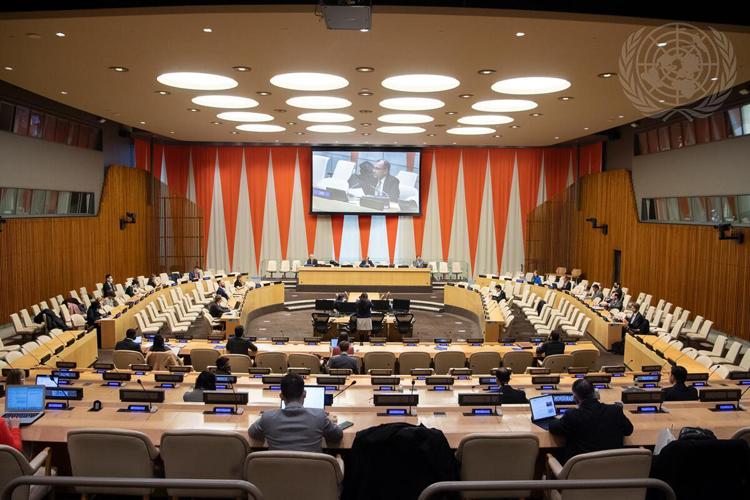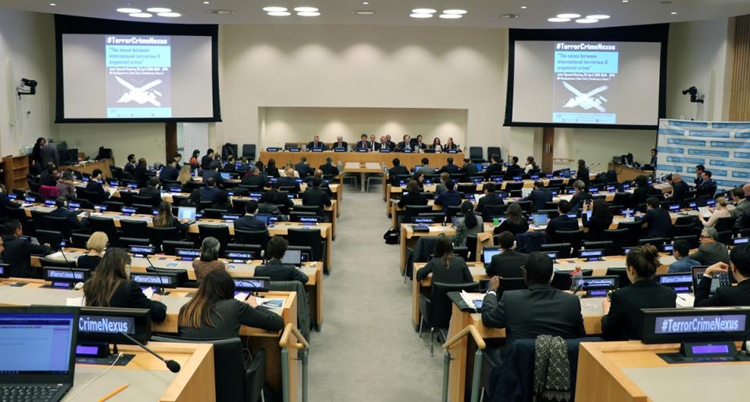INDIAN ARMED FORCES CHIEFS ON OUR RELENTLESS AND FOCUSED PUBLISHING EFFORTS

The insightful articles, inspiring narrations and analytical perspectives presented by the Editorial Team, establish an alluring connect with the reader. My compliments and best wishes to SP Guide Publications.

"Over the past 60 years, the growth of SP Guide Publications has mirrored the rising stature of Indian Navy. Its well-researched and informative magazines on Defence and Aerospace sector have served to shape an educated opinion of our military personnel, policy makers and the public alike. I wish SP's Publication team continued success, fair winds and following seas in all future endeavour!"

Since, its inception in 1964, SP Guide Publications has consistently demonstrated commitment to high-quality journalism in the aerospace and defence sectors, earning a well-deserved reputation as Asia's largest media house in this domain. I wish SP Guide Publications continued success in its pursuit of excellence.
- Operation Sindoor: Resolute yet Restrained
- India’s Operation Sindoor Sends a Clear Message to Terror and the World – ‘ZERO TOLERANCE’
- Japan and India set forth a defence cooperation consultancy framework, talks on tank and jet engines
- Terrorist Attack in Pahalgam in Kashmir: Unfolding a long surgical war against PAK
- Lt General Pratik Sharma takes over Command of Indian Army's Northern Command
India Hosting UN CTC Meet
India is the Chair of the Counter Terrorism Committee (CTC) for the year 2022 and will host diplomats of the 15-nation UN body along with other member states for the special meeting in Mumbai and New Delhi
 |
The Author is Former Director General of Information Systems and A Special Forces Veteran, Indian Army |

India will be hosting the diplomats of United Nations Security Council (UNSC) with other member states for a meeting of ‘Counter Terrorism Committee’ in Mumbai and New Delhi on October 28 and 29, 2022. On the first day, October 28, the meeting is scheduled to be held at Hotel Taj Palace in Mumbai, which was one of the targets during the 26/11 Mumbai terrorist attacks in 2008 by Pakistan-based terrorists.
The five permanent members of the UNSC are China, France, Russia, UK and the US. In addition, there are 10 non-permanent members in the UNSC, five of which are elected each year by the General Assembly for a two-year term. Presently, the 10 non-permanent members are: Albania, Brazil, Gabon, Ghana, India, Ireland, Kenya, Mexico, Norway and the UAE. The non-permanent member term for India, Ireland, Kenya, Mexico and Norway ends in 2022 and for the others in 2023.
More than 50 United Nations Member States have never been Members of the Security Council. A State which is a Member of the United Nations but not of the Security Council may participate, without a vote, in its discussions when the Council considers that country's interests are affected. Both Members and non-members of the United Nations, if they are parties to a dispute being considered by the Council, may be invited to take part, without a vote, in the Council's discussions; the Council sets the conditions for participation by a non-member State.
The United Nations’ Counter-Terrorism Committee Executive Directorate (CTED) has said that the Security Council ‘Counter-Terrorism Committee (CTC) will hold a special meeting in India focused on new and emerging technologies
India is the Chair of the Counter Terrorism Committee for the year 2022 and in that capacity will host diplomats of the 15-nation UN body along with other member states for the special meeting in Mumbai and New Delhi. The United Nations’ Counter-Terrorism Committee Executive Directorate (CTED) has said that the Security Council ‘Counter-Terrorism Committee (CTC) will hold a special meeting in India focused on new and emerging technologies.
The main events on October 28 in Mumbai would include: Statement on Victims of Terrorism, and; “In Memoriam” Tribute to the Victims of 26/11 terror attacks and Joint Wreath Laying at the 26/11 Memorial. The next day events will be in Hotel Taj Palace at New Delhi, where aside from high-level statements, thematic briefings will be held to include: Countering terrorists exploitation of Information and Communication Technologies (ICTs); Countering terrorism financing online – threats and opportunities related to new payment technologies and fund raising methods, and; Threats posed by terrorist use of unmanned aerial systems (UAS).
Thereafter, following sessions are scheduled: Overarching considerations for countering the use of new and emerging technologies for terrorist purposes (presentation of the outcome document); Intervention from Counter Terrorism Committee Members; Intervention from other Member States and other participants attending in person, and, Closing Address and Adoption of the Outcome Document.
The upcoming Special Meeting of the CTC would bring global focus on the 26/11 terrorist attacks in Mumbai and would be an opportunity to update knowledge on how terrorist acts can be countered collectively and by individual countries
The Security Council has been addressing the increasing role played by technology in terrorism and counter-terrorism through a number of resolutions, the recent one being Security Council Resolution 2617 (2021), which explicitly cited the emerging technologies. The Special Meeting of the CTC is to specifically focus on three significant areas where emerging technologies are experiencing rapid development:
- the Internet and social media;
- terrorism financing, and;
- unmanned aerial systems.
These are aimed to provide opportunities to discuss existing and evolving threats, the deployment of new and emerging technology to counter those threats, continuing challenges and good practices, as well as a range of related human rights and gender considerations.
The Special Meeting is open to the wider United Nations membership and other relevant stakeholders including partner UN counter-terrorism bodies; representatives of international, regional and sub-regional organisations, private sector entities and the media.

The 15-member CTC of the UNSC was established to monitor implementation of UNSC Resolution 1373 unanimously adopted in wake of the 9/11 terrorist attacks in the US during 2011, obliging all States to criminalise assistance for terrorist activities, deny financial support and safe haven to terrorists and share information about groups planning terrorist attacks. Though the aim of the CTC is to increase the ability of States to fight terrorism, it is not a sanctions body nor does it maintain a list of terrorist groups or individuals.
In 2004, the Security Council adopted Resolution 1535, establishing the Counter-Terrorism Committee Executive Directorate (CTED) to provide the CTC with expert advice on all areas covered by resolution 1373 and facilitating technical assistance to countries, as well as promoting closer cooperation and coordination both within the United Nations organisations and among regional and intergovernmental bodies.
Terrorism is here to stay. Terrorism continues to be sponsored by nation States – some under the garb of freedom fighters.
The upcoming Special Meeting of the CTC is indeed a privilege for India as the Chair, especially since it would bring global focus on the 26/11 terrorist attacks in Mumbai. The tribute to victims of the 26/11 terror attacks in Mumbai and the Joint Wreath Laying at the 26/11 Memorial by the CTC and others would be unique and a singular homage to all those who lost their lives in the dastardly attacks. It would also be an opportunity to update knowledge on how emerging technologies can be exploited by terrorists and how such terrorist acts can be countered collectively and by individual countries.
However, terrorism is here to stay. Terrorism continues to be sponsored by nation States – some under the garb of freedom fighters. A country like Pakistan with a demonstrated state policy of terrorism is protected by P-5 countries like China and the US. The perpetrators of 26/11 Mumbai terror attacks are yet to be prosecuted and sentenced. Why has the US not handed over Pakistani terrorist David Coleman Headley to India despite his pleading guilty for complicity in the 26/11 terror attacks? The US has been using terrorist organisations as proxy forces periodically. ‘Britain Defence’, the largest mercenary organisation in the UK was used to deliver a chemical weapon to Homs in Syria few years back resulting in the first Sarin Gas attack in Syria. Isn’t this terrorism? Are the Western mercenaries in Ukraine only fighters and not indulging in terrorism?
Finally, the truth is emerging that with Ukrainian forces practically decimated, NATO is pumping in Al Qaeda and ISIS terrorists by truckloads into Ukraine paying them around $1,250 a month to fight the Russian forces. This makes the US the top terror financing and terror supporter in the world. Deliberations by the UNSC and CTC are excellent but as long as nation states place their own interests over countering terrorism, these discussions and resolutions are reduced to theoretical exercises.





